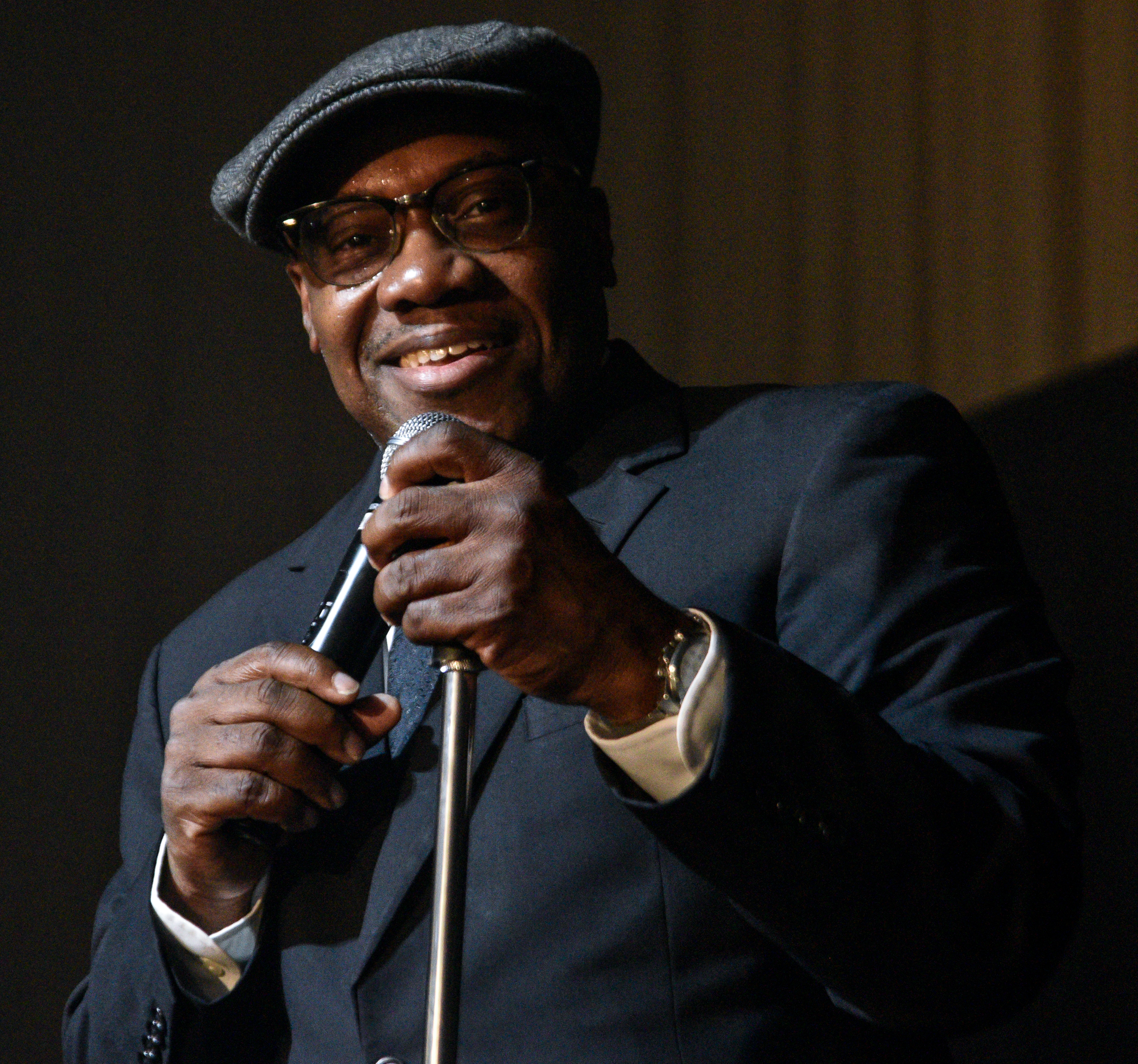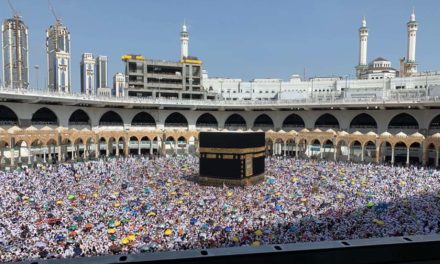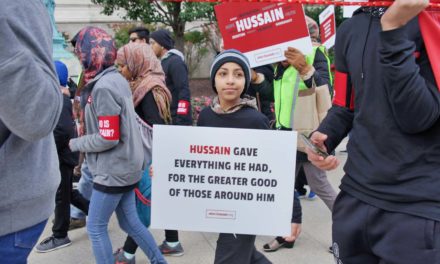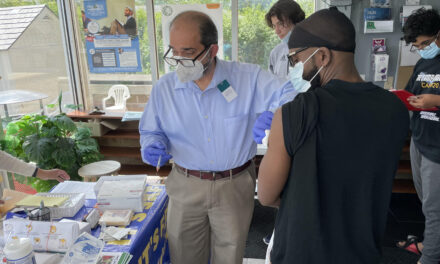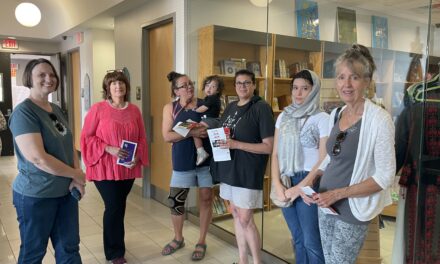Comedian Preacher Moss
Comedian Preacher Moss, one of the few Muslim comics with mainstream success, known for his intelligent wit and insightful material on race and culture in America, aims to do much more than make audiences laugh.
Already a successful comedian before other Muslim comics gained post-9/11 prominence, Moss takes on Islamophobia and Muslim stereotypes. But his clever humor also challenges the stereotypes Muslims hold that divide the community between indigenous and immigrant Muslims.
Moss returns to Milwaukee, the home of his early days as a Muslim convert and a struggling comedian, Saturday in a virtual performance for the Milwaukee Muslim Women’s Coalition’s 10th Anniversary Gala. Attend the gala virtually at 7 p.m. Saturday, Dec. 5, to see Preacher Moss’ gig, as well as to hear from a number of prominent speakers.
In an interview this week, Moss told the Wisconsin Muslim Journal about his early days in Milwaukee as a new Muslim and how being Muslim surprisingly helped him get his break into the challenging field of standup comedy.

Moving to Milwaukee in the early 1980s
When Bryan Reginald Moss, aka “Preacher,” came to Milwaukee to study journalism at Marquette in 1984, “I was still wild—drinking, skallywagging, skirt-chasing. I was as out there as a 17-year-old could be,” he said.
Moss had been raised Christian. He acquired the nickname “Preacher” as a teenager with struggles with the opposite sex, Moss told a reporter from the Milwaukee Sentinel back in 1997. “My friends used to say I might as well take up the ministry,” he explained.
Growing up, he knew Muslims. “Back in D.C., the Nation of Islam was always around us and I knew lots of Muslims before I came to Milwaukee,” he said.
In 1984, America was in the middle of the crack epidemic, Moss recalled. “It was a really dicey situation, the disintegration of the African American family at that time, and not just in the inner city, but in the suburbs. Everybody was touched.
“In fact, my hard-earned interactions with the Nation of Islam were being crime watchers, where we were going to police our blocks. I wasn’t Muslim, but I’m like, ‘You guys have the right idea.’
“Even if you lived in the suburbs, you might have somebody in your family who suffered tremendously from substance abuse and affected their families. You watched people disintegrate. And once strong communities were challenged on so many levels.”
Moss was going home to D.C. during school breaks to fewer friends, he said. “Many of them had either been locked up or killed. I always joke about being the endangered species. I knew my dad and I was going to college.”


Milwaukee had its own set of issues back in 1984, he said. “If you wanted to find the Black people, it was a bus route you took,” Moss said. The Blacks were on the North Side. The South Side has blue-collar, working whites. The East Side was trendy.
“Milwaukee is still extremely segregated, but back then there was no buffer.” As an MU student on the strip of Wisconsin Avenue between downtown and the West Side, he encountered homelessness and alcoholism daily. “And not just African Americans, but whites and Native Americans.
Getting started in Standup
As 17-year-old freshman, Moss heard about Wimpy’s Hunt Club, near the Oriental Theater, that hosted open-mic standup. “I used to run from Milwaukee all the way over to the East Side. I didn’t know the bus system that well and didn’t have that much money. That was ok until it started getting cold. Then you really had to want to do this thing.”
The emcee, C. Cardell Willis, was a celebrated Milwaukee comic throughout the 1970s, 80s and 90s. “It took so many years to earn his trust because I was this young kid,” Moss said. “I still remember the intro. ‘Ladies and Gentlemen, we got a boy here from Washington, D.C. He says he’s funny. Hell, I don’t know. Come on up here, boy.’”
It was a tough gig, especially during football season “because they wouldn’t cut off the football game. So, you had to stand in a corner booth and do your jokes. The crowd is over here and you are doing your jokes over there. Literally, all you’d get were drunks and hecklers. But C. Cardell was such a good guy because he busted me and made me want to get better.”
Becoming a Muslim
“My active engagement with Muslims started at Marquette” at the International Student Center, Moss said. During his junior year, events in his own life and in the society around him made Moss decide it was time to get serious, he said.
Moss, then 20, was back in D.C. where he took the shahadah, the declaration of faith new converts recite when they become Muslim.
“People always ask, ‘Did you join the Nation? I didn’t join the Nation of Islam, but it is only by chance I didn’t.
“The brother who was bringing me along was formerly in the Nation, but not connected at the time. When I was ready to take my shadahah, he told me you just go down to the mosque and tell one of the brothers to take care of you.
Moss walked into a mosque he thought was Muhammad Mosque #4, the mosque of the Hon. Elijah Muhammad and Minister Louis Farrakhan. “I was actually in a Sunni masjid, but the feeling was the same. It was 1988. A lot of the people who were Sunni were from the Nation of Islam. They still had the same demeanor, the same language. After about a month, I realized I hadn’t been required to wear a bow tie yet.”

A Muslim comic in “the City that Means Beer”
“Imagine coming back to Milwaukee a Muslim,” Moss said. “Imagine coming back to Milwaukee and you don’t drink. You’re working in a bar.
‘Hey, let me get you something.’
‘Nah, I don’t drink.’
‘What? You don’t drink? You don’t smoke?’
“I was so happy to be Muslim that the basics were being covered – no alcohol, thinking about getting married. You throw away your little black book, well, one of them,” he said as he laughed. “I kept the other two!”
Moss studied deen and helped paint the masjid at 5135 W. Teutonia Ave., where the Dawah Center is now, he said.
At Marquette, he joined protests on campus against apartheid, calling on his university to divest in South Africa. “I was always the comedian at the protests, tell a few jokes and bring people to the rally.”
During his senior year in 1988, Milwaukee Alderman Michael McGee made a proclamation that “if things didn’t get better for Black people in Milwaukee by a certain time, he was going to call for revolution,” Moss said.
Moss graduated that spring and moved back home. He returned to Milwaukee four years later. “The revolution was supposed to happen, so I quit my job in D.C. Ald. McGee said we are going to have to educate our young soldiers, so I took about an $1,800 pay cut to come to MPS.
“McGee got re-elected and the revolution never happened. I wound up in front of a classroom. I taught special education to emotionally disturbed kids and they were going through revolutions every day. They moved me closer to my faith.”
Preacher Moss’ big break
Moss was in Milwaukee, teaching, wearing a kufi cap and working local clubs for the next five years. Then Milwaukee Sentinel reporter Dave Tianen caught his act. “He liked my material and was intrigued that I was Muslim,” Moss said.

(Left to right, George Lopez and Preacher Moss) Well-known Latin American comedian George Lopez hired Moss as a writer.
About Moss, Tianen wrote: “Moss is an amiable and serene collection of incongruities. His life is rife with the kind of contrasts that challenge preconceptions. A convert to Islam … he sometimes gets home from the comedy clubs at 2 a.m. By 5:15 a.m., he’s back up for prayers.”
“All the sudden, I have this notoriety. I’m not blackballed anymore (For a time, clubs had barred him after a complaint about a “sophisticated” Jeffery Dahmer joke). I’m working the club, I’m doing Summerfest. It was that article. He liked my material as well. He was really intrigued by why I would be in the middle of all this stuff since I don’t drink, don’t promote the alcohol and I’m not talking about anything suggestive.”
Shortly after that, in 1997, Moss moved to California and worked in L.A.’s popular comedy venues. By 2000, he was performing his award-winning show, “End of Racism,” on college campuses and in high schools nationwide. In 2004, Moss founded the acclaimed “Allah Made Me Funny–the Official Muslim Comedy Tour” and took it to 30 U.S. cities and around the world. He is still performing, producing and engaged in other creative pursuits.
And the rest, as they say, is history.
